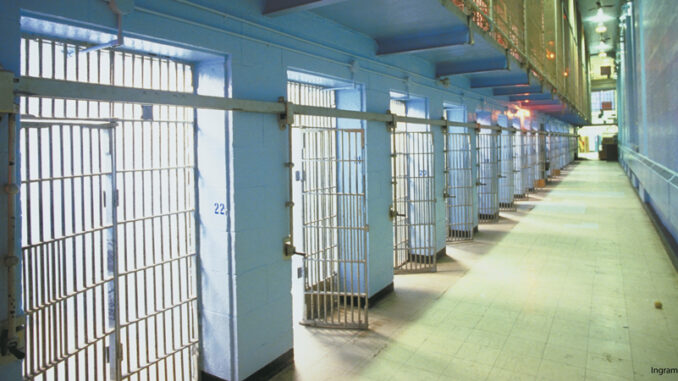
Next Steps for FIRST STEP?
In February, Election Central took a look at the new FIRST STEP Act, which was signed into law by the president on December 21, 2018, and seeks to reform the current U.S. prison system in the hopes of lowering the rate of recidivism (the rate at which people who have left the prison system wind up returning to it). Among other things, the new law reduces sentences for nonviolent offenders and those who exhibit good behavior behind bars, and also strives to improve prison conditions. But is it effective?
In some ways, yes. FIRST STEP has granted leniency to more than 500 nonviolent offenders who would otherwise have spent decades behind bars. But fixing the problem of recidivism isn’t as easy as simply letting people out of prison early. FIRST STEP calls for the creation of rehabilitation and training programs for recently-released prisoners. The problem is that many of those programs haven’t been developed yet. While the Justice Department is already falling behind deadlines on implementation, Congress has not yet appropriated enough funds to carry out this critical part of the law.
Why the delay? Some officials blame the recent 34-day governmental shutdown, the longest in U.S. history. But Trump has made it clear that he is committed to working with Congress to secure the necessary funding to make the next steps of FIRST STEP a reality, sooner rather than later.
Dig Deeper What does FIRST STEP stand for? Based on what you’ve read, do you think this is an accurate name for the program? Explain.
New Zealand Takes Action on Gun Control

Credit: ©Digital Archive Japan / Alamy
In March, btw brought you the story of the March 15 mass shooting at two mosques in Christchurch, New Zealand. Immediately after the shootings, which killed fifty people, the New Zealand government responded by announcing that it would pass new laws to ban semi-automatic, military-style weapons and assault rifles, such as those used by the shooter. Last Monday, the bill banning these weapons–called The Arms (Prohibited Firearms, Magazines, and Parts) Amendment Bill–was officially introduced by Prime Minister Jacinda Ardern. In addition to the complete ban on semi-automatic and assault rifles, this new legislation also prohibits the sale or possession of certain pump-action shotguns that can hold extra ammunition.
The bill already has overwhelming bipartisan support and if it passes as expected, will take effect on April 12. However, owners of prohibited guns will have until September 30 to surrender them to the government. (A government-funded buyback program will financially compensate current gun owners for their property.) Already, in the wake of the March 15 tragedy, hundreds of gun owners have already surrendered their weapons, though it’s estimated that thousands more banned weapons still exist in the country.
After the ban is passed, the government may look at other gun initiatives, such as a gun registry and new rules for gun storage.
Dig Deeper It is estimated that New Zealand has about 30 firearms for every 100 people. Use Internet resources to look up the current population of New Zealand. According to this, roughly how many firearms currently exist in the country? Now do the same calculation for the U.S., which has an estimated 90 firearms for every 100 people.
Democrats Demand Report
Last week, Election Central took a look at the results of Special Counsel Robert Mueller’s special investigation into Trump’s role in the Russian tampering in the 2016 presidential election. While the full report hasn’t yet been released, Attorney General William Barr wrote a letter to Congress identifying its major points: first, that the Trump campaign did not conspire with Russia; and second, that there wasn’t enough evidence to determine definitively if the president was guilty of obstruction of justice for attempting to block the investigation.
While the results of the report are in, the question of when people will be allowed to see it is murkier. It will first go to the House and Senate judiciary committees. Rep. Jerrold Nadler (New York) heads up the House committee. He and his Democratic colleagues asked for a release of the complete report by April 2. But the report is almost 400 pages long and contains information that must be redacted (removed in the interest of public safety). Attorney General Barr says it will be more like mid-April before the report is released, first to key members of Congress, then to Congress in general. Rep. Nadler has also requested that Barr testify as soon as possible before Congress to answer questions about the report, though Barr says that will more likely happen in early May.
Democrats across the country have begun planning rallies and marches to demand that Barr allow the report to go public. Congressional Republicans, however, insist that the April 2 deadline was arbitrary to begin with, and that in the interest of national security, it’s more important that the Justice Department take the time it needs to redact sensitive information before sending the report out into the world.
Dig Deeper Check other news sources to see if there is any updated information on the release of the Mueller Report. Learn how to set up a news alert on your internet device so that you can stay up to date and the news changes.
Lightfoot Wins Chicago Mayoral Race
Last Tuesday night, history was made when Democrat Lori Lightfoot was elected the new mayor of Chicago. Why was this election historic? Because Lightfoot will now be Chicago’s first black female mayor. She will also be the city’s first openly gay mayor. This makes Chicago the largest U.S. city to be headed by a woman, as well as the largest U.S. city in history to have a mayor who openly identifies as LGBTQ.
Lightfoot isn’t a career politician. Rather, she is a former lawyer and federal prosecutor. This was her first campaign for public office. She branded herself as a progressive leader eager to tackle complex issues such as police brutality, violent crime, and widespread poverty in Chicago’s predominantly African American neighborhoods. While many political insiders have expressed concern that Lightfoot’s political inexperience means she isn’t prepared to do the job, she argues that she is free from the corruption that plagues many career politicians. Lightfoot has also received criticism from criminal justice activists, who say that her recent role as the chair of the controversial Chicago Police Accountability Task Force means that she is not as progressive as she claims to be. In fact, they argue, both in her role on the Task Force and as a federal prosecutor, her voting record actually shows her working against the black community.
